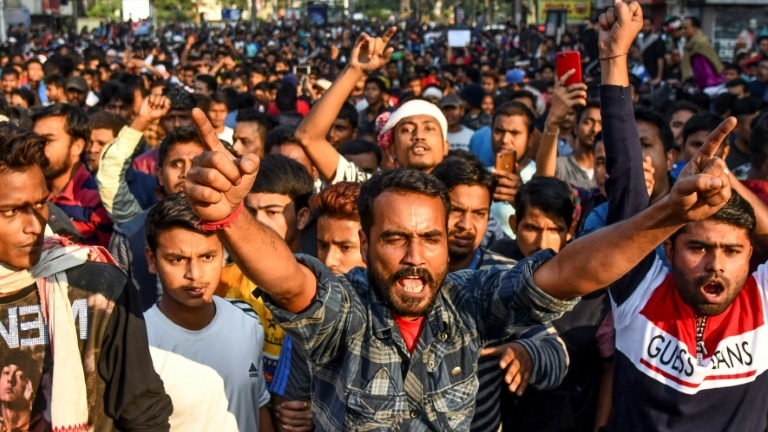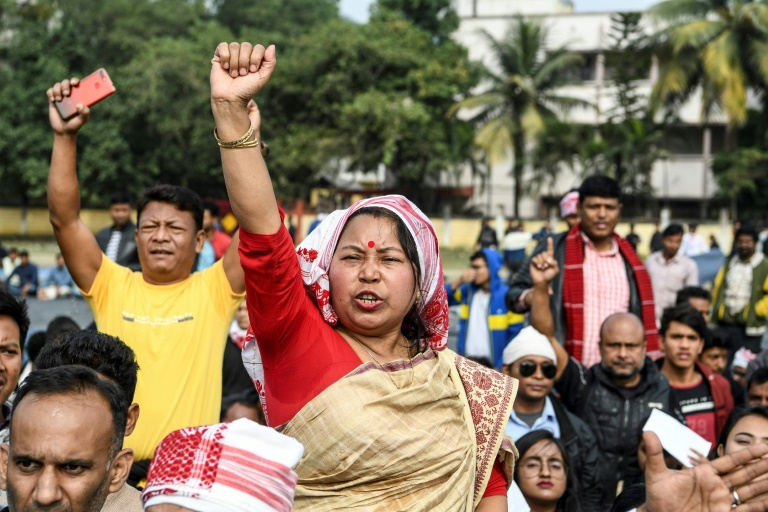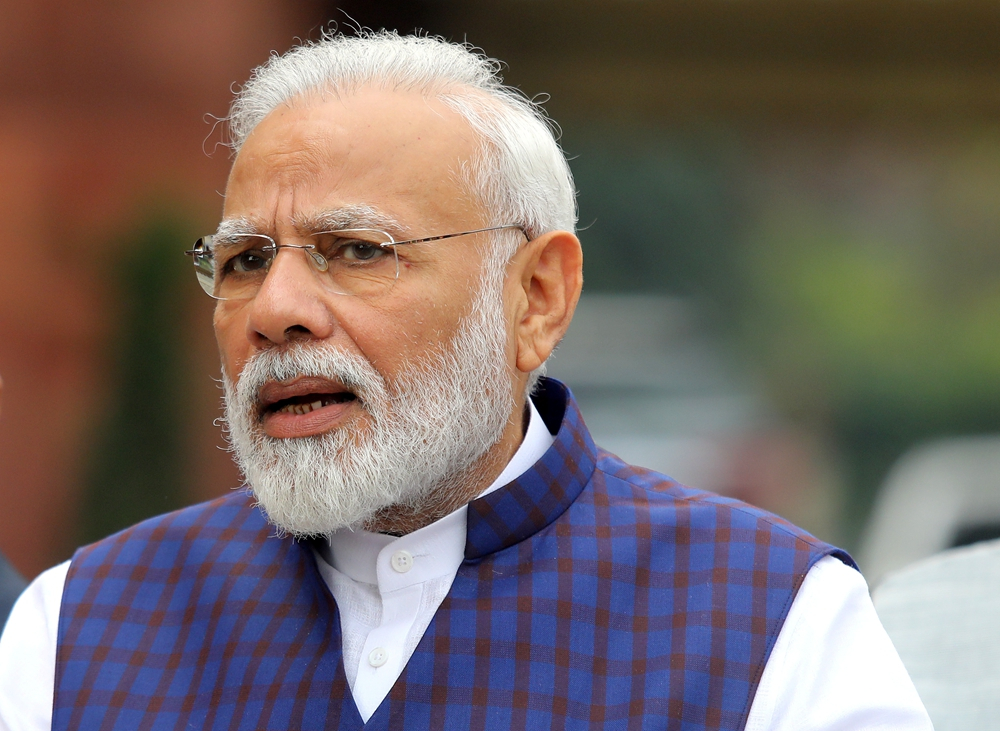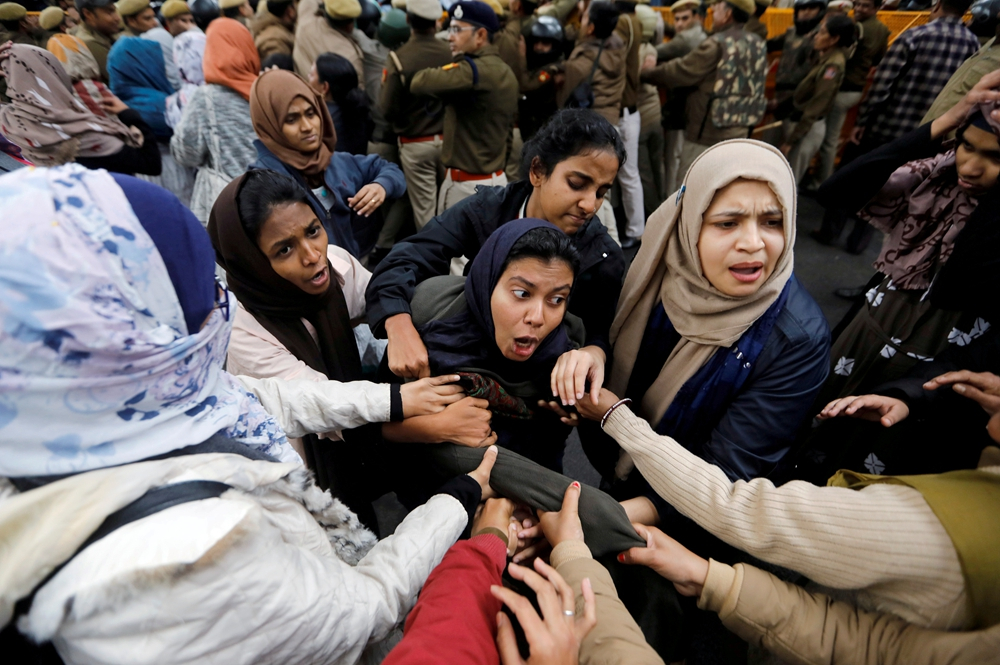00:36

Internet access was cut in India's northeastern city of Guwahati on Friday as thousands gathered for fresh protests against a new citizenship law, a day after police shot dead two demonstrators.
Protests erupted this week after the government introduced new legislation that many in the far-flung northeast believe will give citizenship to immigrants from neighbouring Bangladesh, and which other critics say is anti-Muslim.
On Friday morning thousands gathered in central Guwahati as riot police looked on, with residents hurrying out to buy essentials.

Thousands of protesters stage fresh demonstrations meanwhile following several days of running battles with riot police. /AFP Photo
Thousands of protesters stage fresh demonstrations meanwhile following several days of running battles with riot police. /AFP Photo
No fresh violence was reported but Guwahati and other areas remained littered from the detritus of recent days, with some roads blocked by fallen trees, concrete poles, stones and iron railings. Many cash machines have run out of cash and most petrol stations were also shut.
The Meghalaya state government has also cut off mobile internet, with parts of the capital Shillong brought under curfew since Thursday evening.
On Thursday, police had fired live and blank rounds as thousands of demonstrators in Guwahati and elsewhere took to the streets, some vandalizing property and torching vehicles.
The two demonstrators killed in the city were among around 20 people being treated in hospital, "a few" of whom had gunshot wounds, said Ramen Talukdar, a doctor at a Guwahati hospital.
Hundreds of passengers stuck at Guwahati airport were brought to the city on government buses with police escort in the early hours of Friday morning.

India's Prime Minister Narendra Modi speaks to the media inside the parliament premises on the first day of the winter session in New Delhi, India, November 18, 2019. /Reuters Photo
India's Prime Minister Narendra Modi speaks to the media inside the parliament premises on the first day of the winter session in New Delhi, India, November 18, 2019. /Reuters Photo
The bill
The Citizenship Amendment Bill (CAB), signed into law by the Indian president late Thursday, allows for the fast-tracking of applications from religious minorities from three neighbouring countries, but not Muslims.
For Islamic groups, the opposition and rights groups, it is part of Modi's Hindu nationalist agenda to marginalize India's 200 million Muslims. He denied this.
Several thousand troops have been drafted in to help police, who fired tear gas and charged demonstrators with batons, in recent days.
Security was increased at the Bangladeshi consulate in Guwahati after a vehicle in the consul's convoy was attacked Wednesday by mobs, the foreign ministry in Dhaka said.
"They can't settle anyone in our motherland. This is unacceptable. We will die but not allow outsiders to settle here," Manav Das, a protester said on Friday.
"We will defeat the government with the force of the people and the government will be forced to revoke the law," said local activist Samujal Battacharya.

Police detain a protester outside Jamia Millia Islamia University during a protest against the Citizenship Amendment Bill in New Delhi, India, December 13, 2019. /Reuters Photo
Police detain a protester outside Jamia Millia Islamia University during a protest against the Citizenship Amendment Bill in New Delhi, India, December 13, 2019. /Reuters Photo
World reactions
The U.S. State Department on Thursday urged India to "protect the rights of its religious minorities," and Pakistani Prime Minister Imran Khan strongly condemned the bill, saying it was "driven by a toxic mix of an extremist Hindutva ideology."
Meanwhile, Bangladesh's Foreign Minister AK Abdul Momen said the bill could weaken India's historic character as a secular nation.
The United Nations human rights office called for a revision of the bill, saying it's "fundamentally discriminatory in nature."
Japanese Prime Minister Shinzo Abe also canceled his visit to India due to the violence, and Britain and Canada issued travel alerts to their citizens.
(With input from AFP)